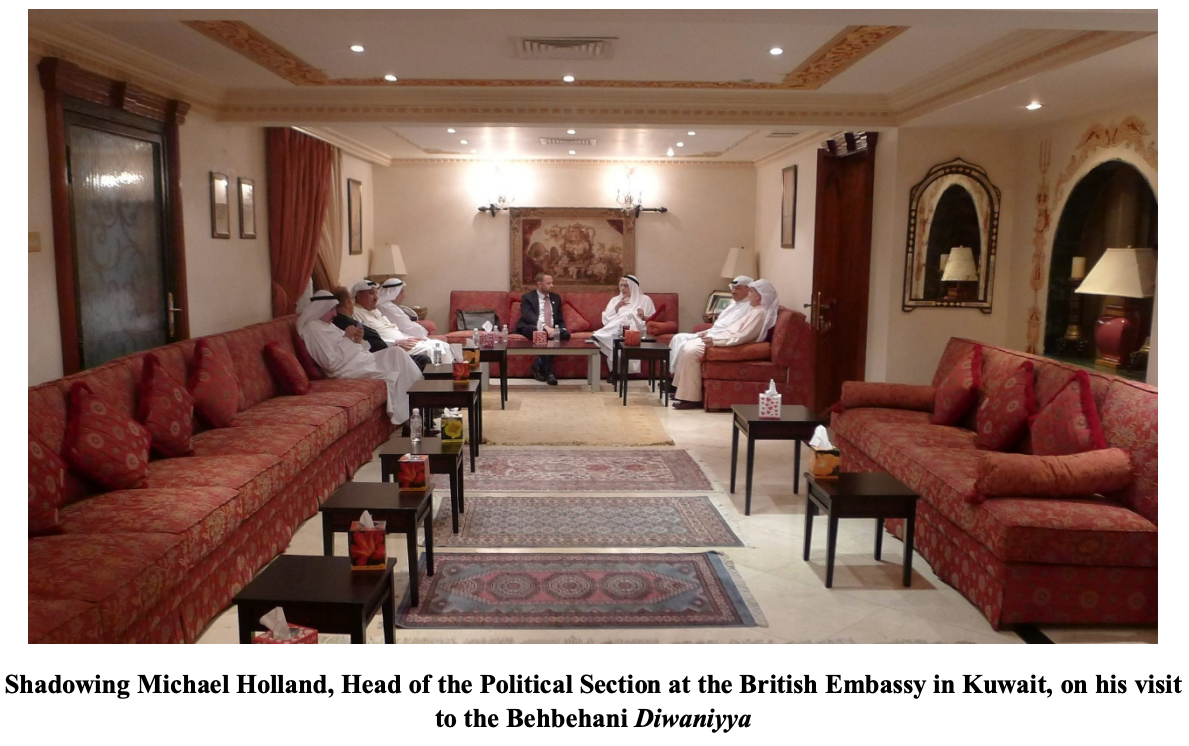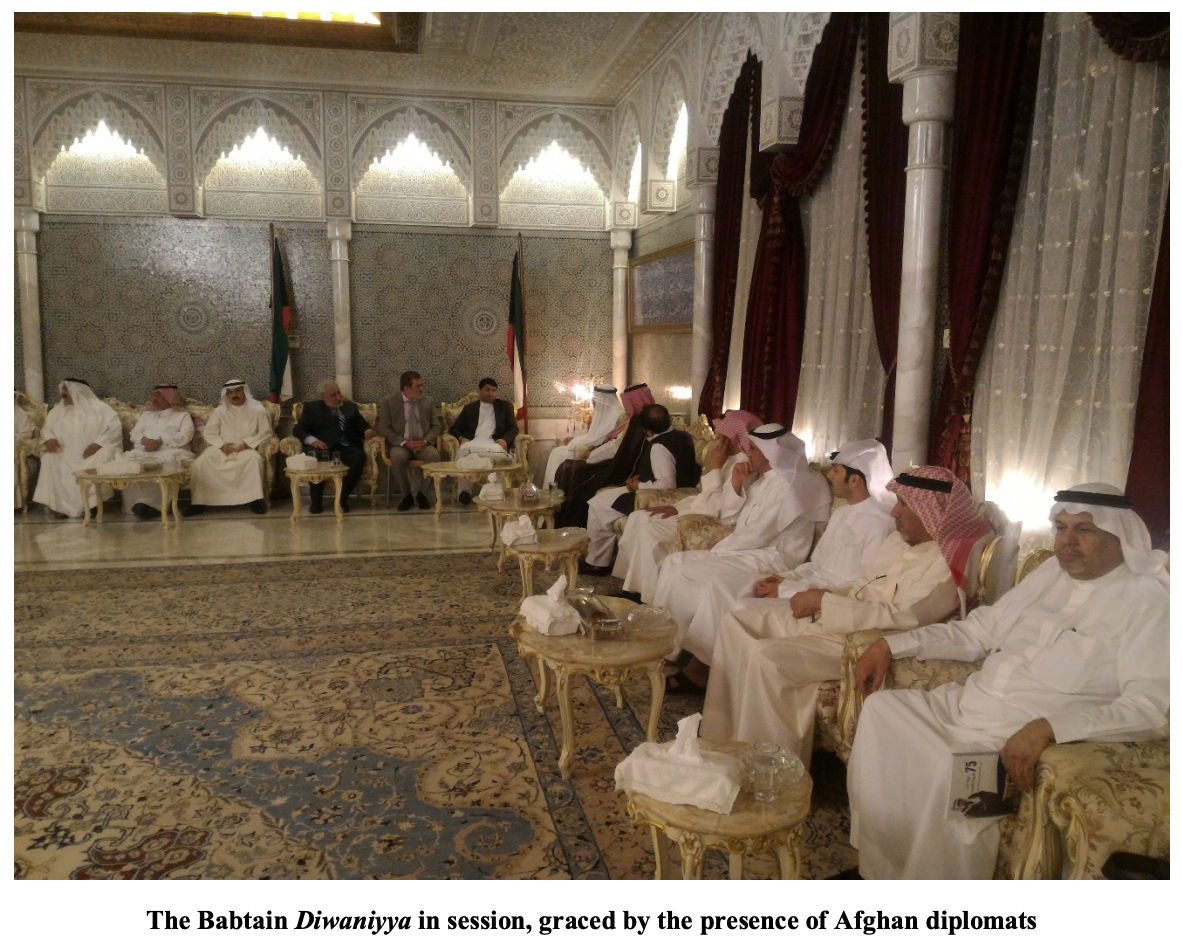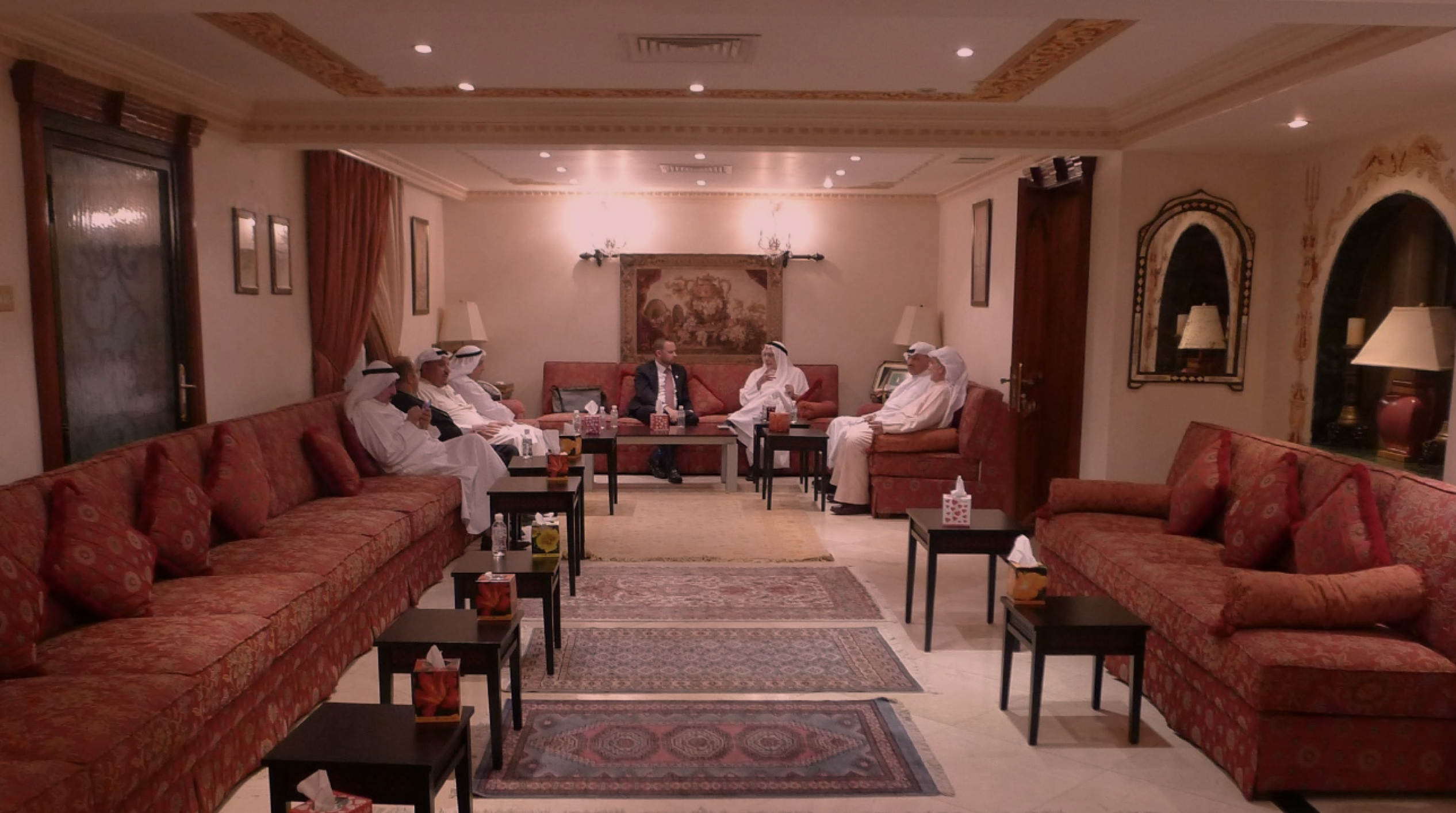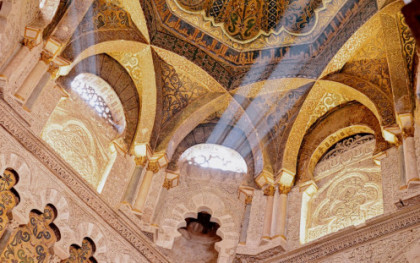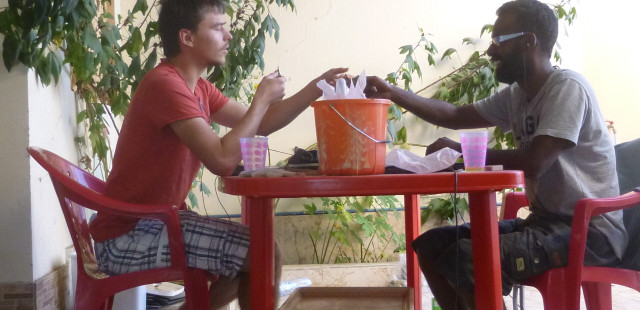While the word “diwan” has been widely used across the Gulf to refer to the Office of the Ruler, in Kuwait the suffix “-iyya” transforms the word into the more affectionate “diwaniyya,” referring to places of social gathering for Kuwaiti men to discuss issues relevant to them. As a reception room and a social practice, the diwaniyya is a well-embedded aspect of Kuwaiti culture. Imbued with tribal customs of the past, and taking up communal functions during Kuwait’s golden years as a port city, the diwaniyya today finds itself in an urban environment. Its relevance, as I argue, lies in ensuring the social contract between the Al-Sabah ruling family and Kuwaitis – governance as a “family”. As one commentator puts it, diwaniyyas reflect the “skeleton of families” in Kuwait; through the diwaniyya each family knows its role and those of other families (in politics, business or on the social ladder). Academic literature on the diwaniyya has largely centred on its political potential, particularly when it is used for campaigning in the period leading up to the elections.
Yet my project establishes that the diwaniyya is first and foremost a social anchor, despite its undeniable potential for politicisation. As a space traditionally situated within the private confines of the house, but providing for a range of public sphere activities, the diwaniyya walks on the fine line between the public and the private. Elsewhere I have argued that the circulation of social and cultural capital (social networking and the generational transfer of traditions respectively) through diwaniyya visits has ensured the diwaniyya’s persistence and, in some ways, its sanctity.
My most recent field trip, which The BFSA has kindly supported, aimed to further relate the diwaniyya practice to diplomacy situated in a non-Western frame of reference. During the course of my fieldwork, I have spoken to diwaniyya owners, diplomats from different embassies, academics, members of the ruling family, and government officials. The qualitative data obtained points to how the diwaniyya embodies a diplomatic practice used both, at the ground level, and at the higher echelons of Kuwaiti society (by the royal family, MPs, ambassadors, prominent merchants).
